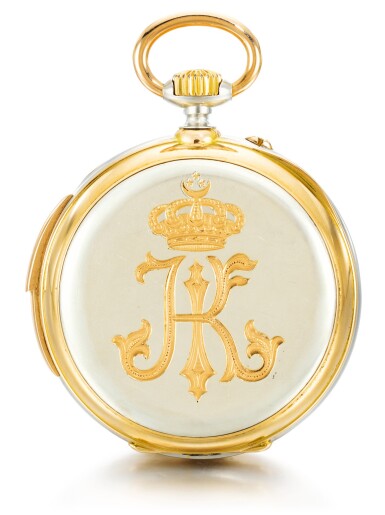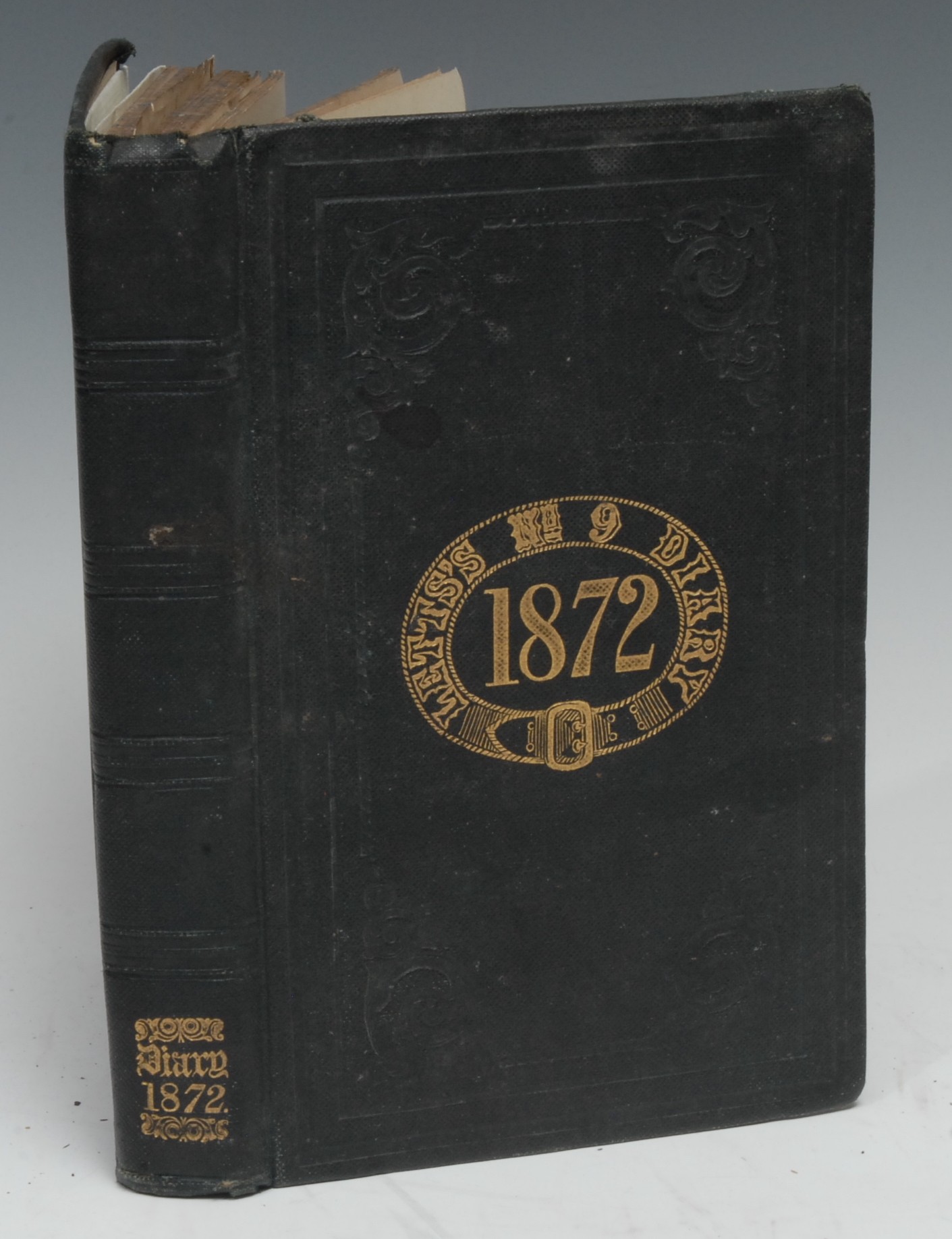The Egypt and Sudan Medal awarded to Colonel H. G. MacGregor, C.B., Assistant Adjutant-General of the Army and an A.D.C. to Queen Victoria, late 17th and 29th Foot Egypt and Sudan 1882-89, dated reverse, 1 clasp, Suakin 1885 (Maj: H. G. MacGregor.), edge bruise and light pitting, very fine Harry Grey MacGregor was born at Dublin Castle on 15 January 1838, the younger son of General Sir H. MacGregor Educated privately in Berkshire and at Trinity College, Cambridge, he was appointed Ensign in the 17th Foot in May 1858, and purchased a Lieutenancy in the 1st Battalion, who were in service at Quebec, in June 1860. Clearly demonstrating his flair for organisation and administration, MacGregor served well as Adjutant, September 1862-February 1863. Towards the end of 1863 he was selected to attend Staff College, passing out in December 1865 to rejoin his regiment. It would not be for long however, as he took a posting as Instructor of Military History at the Royal Military College, Sandhurst in November 1867. Purchasing his Captaincy in the 10th Foot in November 1869, he soon exchanged this to the 29th Foot, before taking up his first real Staff appointment, serving as A.D.C. to Major-General D. Russell Commanding South Eastern District at Dover. Further postings followed before returning to the 29th Foot in June 1877, but as luck would have it, a Special Service appointment to the Cape of Good Hope in November 1878 would bring him his first true taste of action. Having arrived in good time for the Zulu campaign, he joined Colonel Pearson's No. 1 Column on the Staff as Deputy-Acting-Quarter-Master-General. It was in this position that he crossed the Inyezane in January 1879 and was a prominent figure during the epic Siege of Etshowe, 22 January-3 April 1879. He was noted by Staff-Sergeant Bateson, 99th Regiment in his comments on their defences being '...perfect and impregnable, thanks to the work of Captain Wynne and Captain MacGregor.' Meanwhile MacGregor was a member of the bible class which met four times a week and, unusually, took the lead from the Army Chaplains in taking non-sectarian services on Sunday evenings. Whilst the defences were secure in the siege, it was imperative for communications to be made with the troops on the Tugela. MacGregor again came to the fore, commanding the Signal and Intelligence Section, flying fire balloons and improvising 'fire flashing' signals. One of these included rigging up a long piece of iron tubing (located originally in the Church) with mirrors and papers at each end of the tubing - the heliograph produced good results and can be seen at work in the Illustrated London News, 26 April 1879. MacGregor was awarded a Brevet Majority and a brace of 'mentions' (London Gazette 5 March & 16 May 1879, refer) to go with his Medal & clasp. Having rendered further service in the First Boer War, MacGregor was retired on 22 February 1882, but he was recalled as Deputy-Assistant-Adjutant-General and Quarter-Master-General for the Egypt Expedition from August-November 1882. He served on Lines of Communications and was promoted Lieutenant-Colonel, with a further 'mention' (London Gazette 2 November 1882, refers), and received the Medal without clasp, Khedive's Star and the 4th Class Order of Osmania. Returned to England for a post at Headquarters Northern District, York, his final stint of active service occured in early 1885. MacGregor was Assistant-Adjutant-General and Quarter-Master-General to Lieutenant-General Sir G. Graham, V.C., for the Suakin Expeditionary Force, February-June 1885, which won him yet another 'mention' and the clasp to his Medal. Promoted Colonel on 24 November 1886, he was also appointed an Aide de Camp to Queen Victoria. Made a C.B. on 25 May 1889, MacGregor retired on 15 January 1895, also with the Jubilee Medal 1887 with clasp. A keen member of The National Club, he died at 4 Brechin Place, South Kensington on 30 October 1925; sold with copied research.
The Egypt and Sudan Medal awarded to Colonel H. G. MacGregor, C.B., Assistant Adjutant-General of the Army and an A.D.C. to Queen Victoria, late 17th and 29th Foot Egypt and Sudan 1882-89, dated reverse, 1 clasp, Suakin 1885 (Maj: H. G. MacGregor.), edge bruise and light pitting, very fine Harry Grey MacGregor was born at Dublin Castle on 15 January 1838, the younger son of General Sir H. MacGregor Educated privately in Berkshire and at Trinity College, Cambridge, he was appointed Ensign in the 17th Foot in May 1858, and purchased a Lieutenancy in the 1st Battalion, who were in service at Quebec, in June 1860. Clearly demonstrating his flair for organisation and administration, MacGregor served well as Adjutant, September 1862-February 1863. Towards the end of 1863 he was selected to attend Staff College, passing out in December 1865 to rejoin his regiment. It would not be for long however, as he took a posting as Instructor of Military History at the Royal Military College, Sandhurst in November 1867. Purchasing his Captaincy in the 10th Foot in November 1869, he soon exchanged this to the 29th Foot, before taking up his first real Staff appointment, serving as A.D.C. to Major-General D. Russell Commanding South Eastern District at Dover. Further postings followed before returning to the 29th Foot in June 1877, but as luck would have it, a Special Service appointment to the Cape of Good Hope in November 1878 would bring him his first true taste of action. Having arrived in good time for the Zulu campaign, he joined Colonel Pearson's No. 1 Column on the Staff as Deputy-Acting-Quarter-Master-General. It was in this position that he crossed the Inyezane in January 1879 and was a prominent figure during the epic Siege of Etshowe, 22 January-3 April 1879. He was noted by Staff-Sergeant Bateson, 99th Regiment in his comments on their defences being '...perfect and impregnable, thanks to the work of Captain Wynne and Captain MacGregor.' Meanwhile MacGregor was a member of the bible class which met four times a week and, unusually, took the lead from the Army Chaplains in taking non-sectarian services on Sunday evenings. Whilst the defences were secure in the siege, it was imperative for communications to be made with the troops on the Tugela. MacGregor again came to the fore, commanding the Signal and Intelligence Section, flying fire balloons and improvising 'fire flashing' signals. One of these included rigging up a long piece of iron tubing (located originally in the Church) with mirrors and papers at each end of the tubing - the heliograph produced good results and can be seen at work in the Illustrated London News, 26 April 1879. MacGregor was awarded a Brevet Majority and a brace of 'mentions' (London Gazette 5 March & 16 May 1879, refer) to go with his Medal & clasp. Having rendered further service in the First Boer War, MacGregor was retired on 22 February 1882, but he was recalled as Deputy-Assistant-Adjutant-General and Quarter-Master-General for the Egypt Expedition from August-November 1882. He served on Lines of Communications and was promoted Lieutenant-Colonel, with a further 'mention' (London Gazette 2 November 1882, refers), and received the Medal without clasp, Khedive's Star and the 4th Class Order of Osmania. Returned to England for a post at Headquarters Northern District, York, his final stint of active service occured in early 1885. MacGregor was Assistant-Adjutant-General and Quarter-Master-General to Lieutenant-General Sir G. Graham, V.C., for the Suakin Expeditionary Force, February-June 1885, which won him yet another 'mention' and the clasp to his Medal. Promoted Colonel on 24 November 1886, he was also appointed an Aide de Camp to Queen Victoria. Made a C.B. on 25 May 1889, MacGregor retired on 15 January 1895, also with the Jubilee Medal 1887 with clasp. A keen member of The National Club, he died at 4 Brechin Place, South Kensington on 30 October 1925; sold with copied research.











/68829/Internet%20Image%201.jpg)
/75225/Internet%20Image%201.jpg)


Try LotSearch and its premium features for 7 days - without any costs!
Be notified automatically about new items in upcoming auctions.
Create an alert